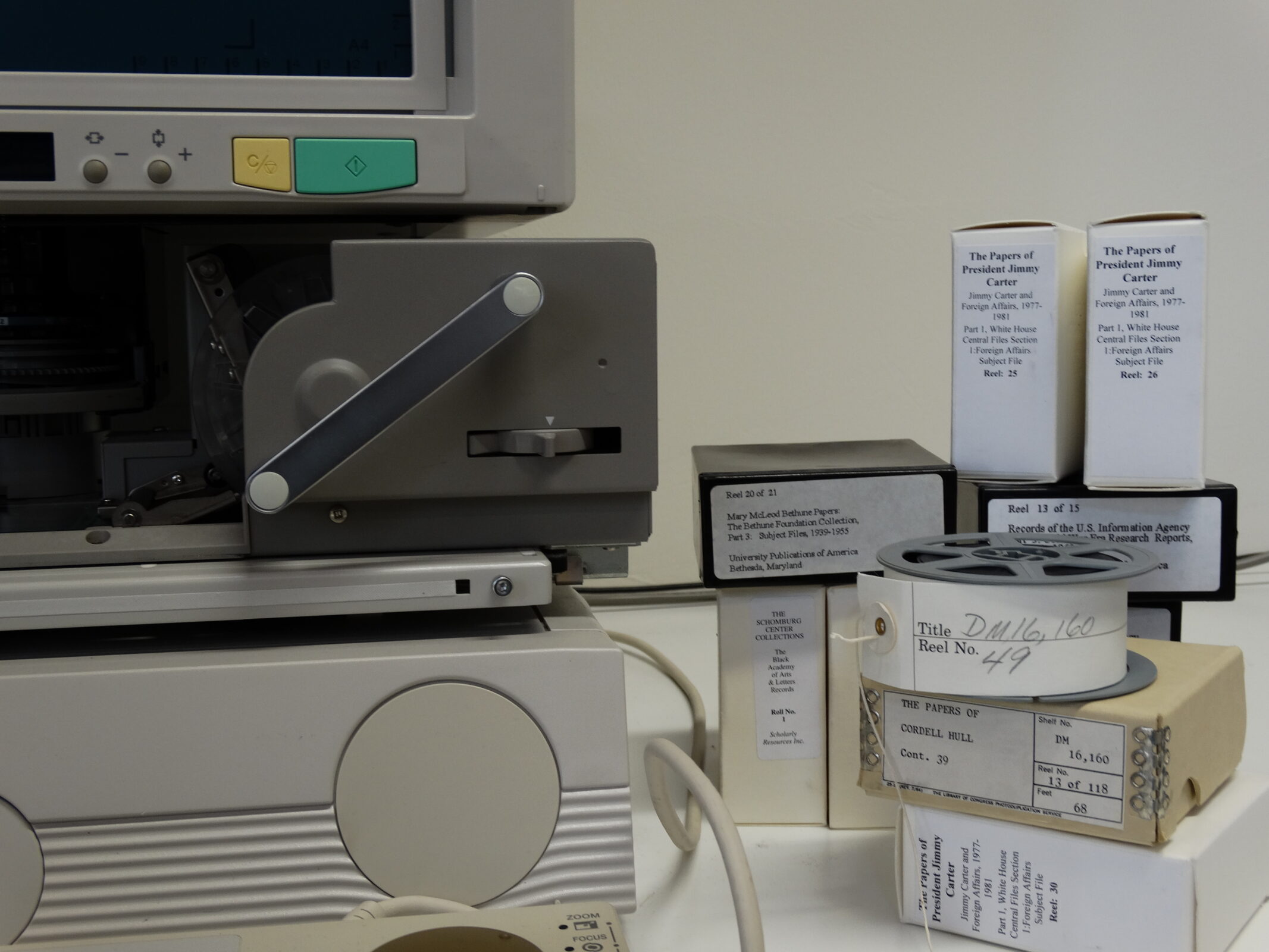Eleanor Roosevelt Oral History Transcripts
This collection provides subjective insight into the life, career and interests of Eleanor Roosevelt. It focuses both on Mrs. Roosevelt and on her many interests. The 68 interviews are both with people who knew her intimately, and with people who knew her primarily through some shared work, as, for example, at the Val-Kill shop, the Women’s Division of the Democratic National Committee, the United Nations, the American Association of the United Nations, or Wiltwyck School. Available on paper.
FINDING AID: Eleanor Roosevelt Oral History Transcripts
The Papers of Eleanor Roosevelt, 1933-1945
The contents of this publication has been selected from the Eleanor Roosevelt Papers at the FDR Library in Hyde Park, New York. The collection focuses on the White House years, 1933-1945, and consists mainly of the personal correspondence files with leading political and governmental figures of the 1930s and 1940s as well as personal friends during that same period. The collection contains important clues concerning her political ideology and tactics. The correspondents were selected with the objective of detailing Eleanor Roosevelt’s though and activities in four major subject areas: social welfare and depression relief; race relations; women in American politics; and youth activities. Alphabetical listing on 20 reels of microfilm.
FINDING AID: The Papers of Eleanor Roosevelt, 1933-1945
Eleanor Roosevelt Radio Program, 1950-1951
A CD collection with more than 200 radioprograms of Eleanor Roosevelt’s. In her radioprogram she received guests, like John Steinbeck, Sam Rayburn, Bob Hope, Nelson Rockefeller, and she raised matters like the United Nations, the Korean War, art, inflation, and television.
FINDING AID: Eleanor Roosevelt Radio Program, 1950-1951
FBI-Files on Eleanor Roosevelt, 1934-1965
The FBI never launched a formal investigation of Eleanor Roosevelt, but kept her under close observation. In the eyes of people as Hoover, Eleanor Roosevelt was a threat to the status quo in American society, because of her affiliation with liberal groups such as the American Youth Congress, as well as her frankness about segregation and lynching and her assertions for free speech. The 3,000-page FBI-file contains charges against her for suspected Communist activities, threats to her life on the grounds of her disloyalty to the country, close monitoring of her activities and writings, and a record of possible insurrectionary groups that she may have influenced. Despite her protest against the methods of the FBI her file was not closed until her death. Available on paper in 14 volumes.
FINDING AID: Introduction
FINDING AID: Roll Notes
The Papers of Eleanor Roosevelt, 1945-1962
Part 1: United Nations Correspondence and Publications. The contents of both parts of this publication has been selected from the Eleanor Roosevelt Papers at the FDR Library in Hyde Park, New York. Part 1 follows the appointment of ER to the UN, her experiences in London, correspondence alphabetically arranged by period, minutes, draft, memos and correspondence of various UN committees and newspaper articles. 28 reels of microfilm.
FINDING AID: The Papers of Eleanor Roosevelt, 1945-1962, part 1
Part 2: United Nations Human Rights Commission Correspondence and Publications. The 11 reels in this collection focus on the Human Rights Commission. They document ER’s efforts to collect information and negotiate about a variety of human rights issues, such as refugees, the status of women, structure and responsibilities of the UN and drafts of the International Bill of Rights.
FINDING AID: The Papers of Eleanor Roosevelt, 1945-1962, part 2
The Papers of Eleanor Roosevelt, 1945-1952, from the F.D. Roosevelt Library
The contents of this publication has been selected from the Eleanor Roosevelt Papers at the FDR Library in Hyde Park, New York. The collection focuses on the years after the White House, 1945-52, and consists mainly of the personal correspondence files. Alphabetical listing on 19 reels of microfilm.
FINDING AID: part 1: General Correspondence, 1945-1947
FINDING AID: part 2: General Correspondence, 1948-1949
FINDING AID: part 3: General Correspondence, 1950
FINDING AID: part 4: General Correspondence, 1951-1952



